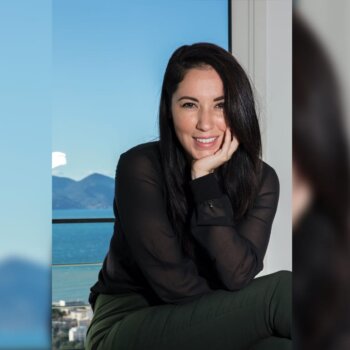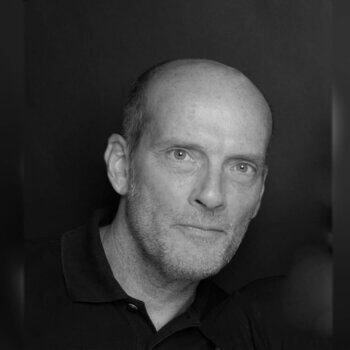Yuen Tuck Siew founded RinggitPlus.com in 2012 and has grown the business from a two man lean startup to Southeast Asia’s first full stack fintech solution provider for customer acquisition and management. Starting off with an online financial comparison website and a goal to help Malaysians get more for their money, he adapted the business model to the local challenges of the region’s emerging market economies. Siew lead the company through a successful merger with SaveMoney.my, Malaysia’s largest money saving community, and the launch of KreditGoGo.com, the Indonesian business JV with Celebes Capital.
Described as a “general who runs a tight army”, Siew is responsible for driving Saving Plus’s long-term strategy and consumer-centric focus. He has a fundamental belief that consumers should be able to apply for any financial product, anytime, anywhere and from any device. Not content with financial comparison alone, his mission is to build Saving Plus into the Amazon of Financial Services, Earth’s most customer-centric company.
Siew graduated from Oxford in 2004 with a degree in Modern History and started his career at Citigroup Investment Bank. After three years in Corporate Finance and Leveraged Finance, he joined Kynikos, the world’s largest short-only equity hedge fund, to cover global banks. Siew returned to Malaysia in 2010 to join Redberry Media Group where he was responsible for setting up their integrated media solutions.
In your own words what is Saving Plus?
Saving Plus provides end-to-end technology solutions and platforms for banks and insurance companies to acquire and manage customers online. In addition to our own personal finance and comparison websites RinggitPlus.com, SaveMoney.my and KreditGoGo.com, we also provide technology-driven outsourced application fulfilment services. My vision is to enable consumers to acquire any financial product anytime, anywhere and on any device and I started Saving Plus to make that a reality.
How did you come up with the idea of Saving Plus?
When I was living and working in London I never had to step into a bank branch – I managed all my personal finances online through sites such as http://www.moneysupermarket.com/. I took it for granted that all my banking and insurance needs could be dealt with online. When I came back to Malaysia in 2010 I had a real shock when I couldn’t do anything online! I believed that consumers in Malaysia and across Southeast Asia would benefit from an online service that helped them to get more for their money by comparing financial products online.
Could you walk us through the process of starting up Saving Plus?
My co-founder, James Barnes (who is now the Group COO) and I started in a borrowed meeting room. It was just the two of us. There was nothing special – we just get to work. Our top priority was to hire a lean team to build the MVP. Between interviewing candidates we split our time between product development and business development. I started seeing clients before we even had a website up.
Did you encounter any particular difficulties during start-up?
Recruiting: this was especially difficult when we did not even have a website. We didn’t have any secret sauce to solve the problem – we just kept interviewing. Even today hiring the right people is still our greatest challenge.
Business Development: persuading banking clients to work with you when you’re a start-up with no track record was tough. Most clients really weren’t interested at all. Again, there was no secret sauce – I just kept going until I found people who were willing to give us a shot.
How have you been developing Saving Plus since start-up?
We have very simple goals for our product that are very hard to achieve – we want to help our consumers get more value and better a service than anywhere else. So, for example, applying for a credit card or personal on RinggitPlus.com should be more convenient than going to your bank branch.
What kind of feedback did you get for Saving Plus so far?
I believe the growth in our business really speaks. Today our business is four times larger than this time last year. We could not have done this without adding significant value to our clients and consumers.
Do you face a lot of competition in this industry?
Absolutely. I believe all technology businesses are facing stiff competition today due to the continued rapid growth of internet penetration and incredible growth in funding from venture capital. Our strategy is to stay focused on our consumers and make sure that we continue to provide best-in-class value and service.
Have you developed any industry insights that you could share?
Online financial comparison alone is not a viable business across Southeast Asia. Banks and Insurance companies do not have the know-how, infrastructure or people to manage digital customer acquisition themselves on a scalable basis. To be successful and sustainable I believe you need provide a full-stack solution and that’s exactly where we come in. We are the only player in our industry that can provide a single integrated end-to-end solution and platform for banks and insurers to acquire customers online.
What is the future of the industry and how do you plan to stay relevant in this industry?
I will continue to invest in our product to ensure it continues to provide a best-in-class experience to our consumers. I also make sure that the business balances short and long term priorities. We devote significant resources to projects that we believe will help us win next year and the year after.
What are your thoughts on the Malaysian start-up scene?
We are seeing great advances in the local start-up ecosystem from all stakeholders. I don’t have hard statistics but I believe more technology start-ups are getting funded and growing into successful and sustainable businesses. Overall I believe we are just seeing the tip of the iceberg in terms of the digital economy – bigger and better things are yet to come.
What do you think about being an entrepreneur in Asia? Is it harder or easier?
I’ve not been an entrepreneur anywhere else so it’s hard to say! One challenge we have in Southeast Asia is the need to conquer several different markets with different cultures and different business landscapes. If you have big dreams you can’t just win in one market.
What are the challenges that Malaysian entrepreneurs face?
I believe Malaysia is a great country to start a business. Compared to the rest of Southeast Asia we have good infrastructure, good rule of law and good talent. If you are trying to raise venture capital funding then one challenge you may encounter is market size. Some investors are more interested in larger economies and populations such Indonesia and Thailand.
What is your definition of success?
That’s a good question. I don’t have a strict definition. In terms of the business I am constantly pushing to provide a better service to more people. There’s no line in the sand which I can cross and say “I’m successful” because there’s always room to improve and grow. That scares some people but it excites me.
Why did you decide to become an entrepreneur?
I have done three distinctly different things with my career – I started off in the service industry in corporate finance advisory, moved over to the investment industry in a hedge fund, then I joined a family business in management. I always wanted to build a business that could improve the lives of every Malaysian. I loved the jobs I’d had in the past but none of them enabled me to make this kind of impact.
In your opinion, what are the keys to entrepreneurial success?
This is a huge question! I’ve seen many different entrepreneurs with different strengths succeed for different reasons. In my opinion, the three most important traits for entrepreneurial success are:
a. Belief – you need to stay committed to your vision in the face of constant rejection and roadblocks. If you don’t truly believe in what you’re doing then don’t expect anyone else to either.
b. Understanding – you need to be able to understand and interpret data and people so that you can separate the signal from the noise and focus on what really matters. One bad strategic decision based on misunderstanding your company’s performance data could easily kill a young start-up. On the other hand, if you can see the real cause of a problem that no one else has figured out then you have a huge advantage.
c. Communication – if you cannot communicate your vision, strategy and plans you’re dead before you start. Successful entrepreneurs have to manage investors, employees, clients and partners. All of this comes down to good communication.
Any parting words of wisdom for entrepreneurs out there from your personal experience?
For your vision you have to dream big, but when it comes to making it happen, the devil is in the detail.
Connect
LinkedIn: https://my.linkedin.com/in/ytsiew
Twitter: https://twitter.com/ytsiew
Websites: https://ringgitplus.com/en/, https://savemoney.my/, https://kreditgogo.com/





























